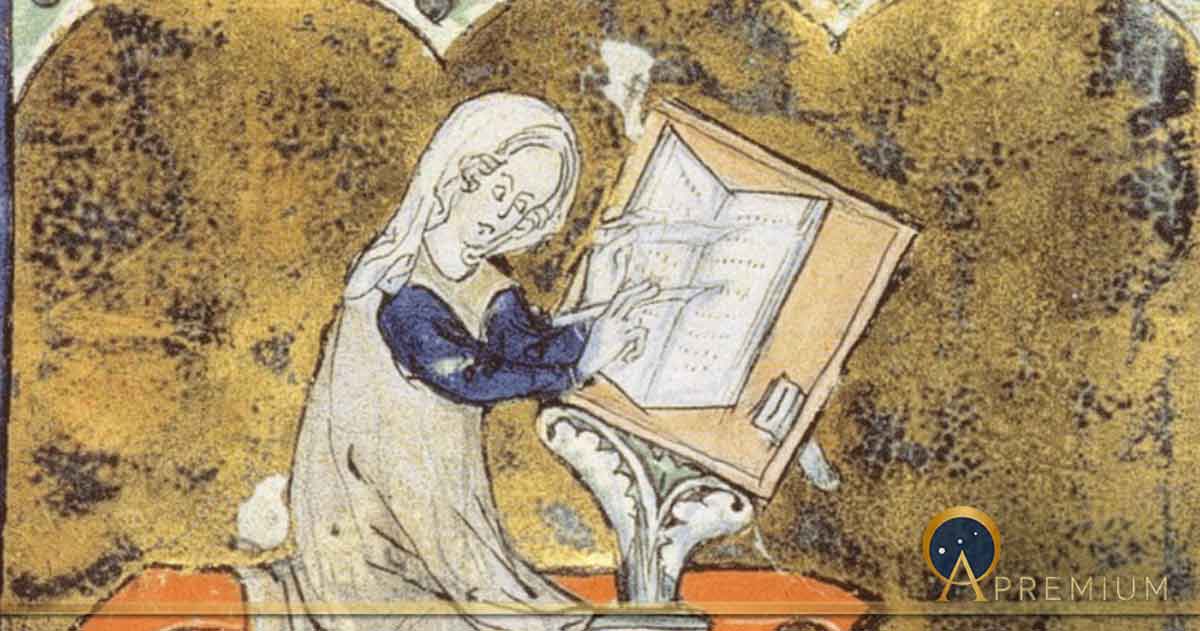Anglo Saxon Women’s Wills: Freeing The Enslaved As Testimony Of Piety
Women’s wills which so miraculously have survived from late Anglo-Saxon times deliver some surprising bequests such as the enslaved, which is shocking, but they mirror the societal values which existed at that time. Owning enslaved people might seem at odds with Christian values, and although some enslaved were bequeathed to other recipients, some wills stipulate hey were set free “for the salvation of my soul”. Society was hierarchical with a small number of elite families and limited social mobility between classes. The enslaved were at the centre of the economy in England as elsewhere across the pagan and Christian world. Owning estates automatically implied owning enslaved. The lady Aethelgifu’s will provides insight into the occupations of the enslaved, for instance it mentions a huntsman, a priest and even a goldsmith (and part of his family) were destined to be freed.

Farming on a medieval estate, by Gilles de Rome (CC BY-SA 4.0)
From their wills it is known that women could inherit as well as bequeath land, and family traditions were strongly preserved by aiming to keep land rather than allowing it to go to another family (by bequest or marriage). In King Alfred the Great’s will in 899 he left some of his most important lands, which he had won in battles against the Vikings, to his wife Ealhswith (d.902). However, the will stipulates two things: the first is that the lands could be bought from Ealhswith by the men of the family and that after her death the land would revert to the royal family.
The Enslaved and Prayer Books in the Same Will
Wynflaed, a widow living in the south of England bequeathed enslaved and others who were to be freed – a process known as manumission. Wynflaed owned large estates across four counties, Dorset, Somerset, Hampshire and the Faccombe estate, in Wiltshire which is named in the will. Once a hunting lodge Faccombe was a large farmhouse, possibly a manor house and estate, with a timbered hall and it was a wedding gift ( morgengifu) from her husband. Morgengifu or ‘morning gift’ was customary given by the husband to his wife the morning after their wedding. It was often land and mentioned in wills, as it was recognised as hers to leave to whom she wished. Recent excavations at Faccombe revealed a smithy for a blacksmith - a necessity in any Saxon estate - together with kitchens and bake houses.
Like this Preview and want to read on? You can! JOIN US THERE ( with easy, instant access ) and see what you’re missing!! All Premium articles are available in full, with immediate access.
For the price of a cup of coffee, you get this and all the other great benefits at Ancient Origins Premium. And - each time you support AO Premium, you support independent thought and writing.
Viki Holton is a Research Fellow (Adjunct) at Ashridge Executive Education, Hult International Business School. Her earlier interests in women in business and leadership has developed recently to include a book about women’s social history, a 1,000 years of women’s wills: A Woman’s Will: The Changing Lives of British Women told through the Things they have left Behind by Amberley Publishing.
Top Image: Marie de France from an illuminated manuscript (Public Domain)
By: Viki Holton
















